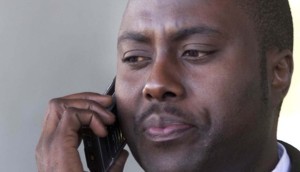The government of South Africa has called on the British government to investigate reports that its delegates who attended two G20 meetings in London in 2009 were put under surveillance.
As the G8 summit got underway in Northern Ireland this week, it was revealed that Britain’s intelligence agencies carried out an intensive spying operation on foreign politicians, especially those from South Africa, Russia and Turkey, who attended the meetings in April and September 2009.
According to reports by The Guardian, details of the surveillance are said to be contained in documents uncovered by US National Security Agency whistleblower Edward Snowden, responsible for a string of disclosures about American intelligence operations.
The documents reveal that Britain’s spying body, the Government Communications Headquarters (GCHQ), spied on communications of visiting delegations on the instruction of the British government.
GCHQ was said to have enabled a team of 45 analysts to be provided with live round-the-clock summaries of who was phoning whom during the proceedings. The leaked documents, classified ‘top secret’, show that G20 delegates had their computers monitored and phone calls intercepted by GCHQ, and were even persuaded to use specially prepared Internet cafes where an email interception programme and key logging software was used to provide the M16 and GCHQ with “sustained intelligence options against them” even after the London summits were over.
One of the documents describes efforts to penetrate South African computers and successfully gain access to the country’s foreign ministry network. They “investigated phone lines used by the High Commission in London” and “retrieved documents including briefings for South African delegates to G20 and G8 meetings”. As a ‘friendly ally’ and member of the G20 group, South Africa has observer status at G8 meetings.
It is alleged that in December 2005, the GCHQ convened a meeting on a project to intensify spying on the South African foreign ministry. It is clear that GCHQ was aiming to find out everything it could about the negotiating position of the government of then President Thabo Mbeki, considered “an independently minded swing vote on issues of global economics and finance.”
The “computer networks exploitation” team is alleged to have acquired passwords ‘wheedled’ out of target governments and agencies. One method was to dig up old phone numbers and email addresses of the head of the cryptology department in Pretoria. The passwords were then used to hack into online accounts of South African diplomats.
South Africa’s Department of International Relations and Cooperation spokesperson Clayson Monyela said government had noted these reports with concern.
“We do not yet have the full benefit of details reported on but in principle we would condemn the abuse of privacy and basic human rights particularly if it emanates from those who claim to be democrats. We have solid, strong and cordial relations with the United Kingdom and would call on their government to investigate this matter fully with a view to take strong and visible action against any perpetrators,” said Monyela.
The leaked documents suggest that the government of then prime minister Gordon Brown sanctioned the surveillance operation at a senior level and that the intelligence obtained was passed to ministers.
These revelations are potentially embarrassing for Prime Minister David Cameron as he hosts this week’s G8 summit at Lough Erne in Northern Ireland.











